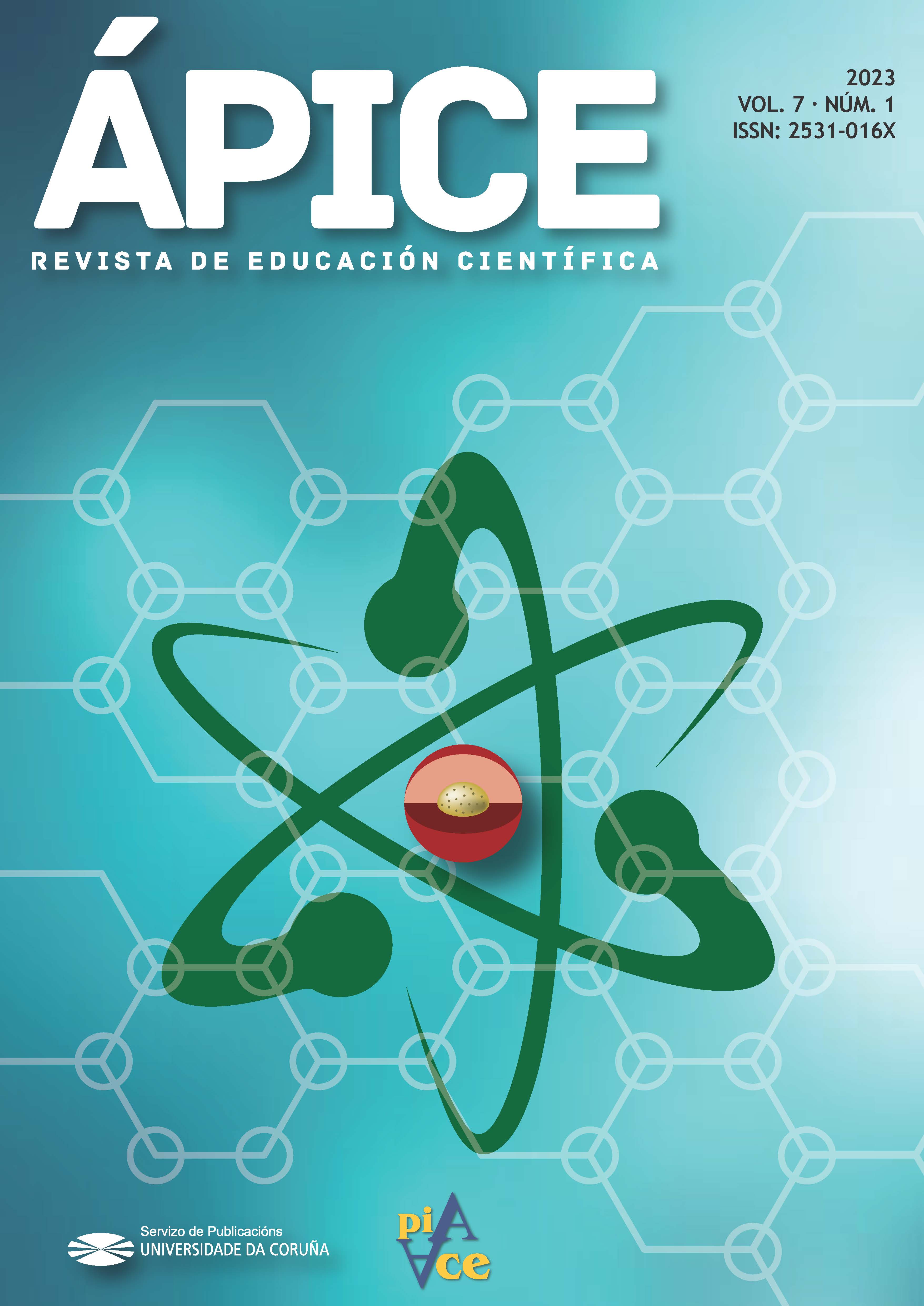Opinions of political leaders about water issues and their implications for the teaching of water culture in schools
Main Article Content
Abstract
Since the middle of the twentieth century, water resource management policies have been based on so-called supply strategies, designed to meet the growing demand for water. The New Water Culture proposes an alternative, sustainable approach to water and water resource management. This article examines the trends observed in the water management-related decisions of ten political leaders in the Autonomous City of Melilla, as a basis for bringing water-related learning and debate into the classroom. The information for the study was gathered through a series of interviews. The results show that the interviewees have extensive knowledge about water, water-related issues and water management. The findings suggest that the responses collected in this study may be a useful way of introducing this issue into the classroom in the form of a socio-scientific conflict aimed at encouraging critical thinking and scientific literacy.
Keywords:
Downloads
Article Details
References
Aguilera, F. (2006). Hacia una nueva economía del agua: cuestiones fundamentales. Polis, 14, 1-17. Recuperado de: https://journals.openedition.org/polis/5044
Aquastat-FAO. (2017). Global Information System on Water and Agriculture. Recuperado de: http://www.fao.org/aquastat/statistics/query/index.html
Benarroch, A.B., Rodríguez-Serrano, M. y Ramírez-Segado, A. (2021). New Water Culture versus the Traditional. Design and Validation of a Questionnaire to Discriminate between Both. Sustainability, 13, 2174. DOI: https://doi.org/10.3390/su13042174
Benarroch, A., Castro-Velásquez, F.E., Clavijo-Cuervo, V.J. y Ramírez-Segado, A. (2022a). La cultura del agua en los libros de texto. Revista Eureka sobre Enseñanza y Divulgación de las Ciencias, 19(1), 1501. DOI: https://doi.org/10.25267/Rev_Eureka_ensen_divulg_cienc.2022.v19.i1.1501
Benarroch, A., Rodríguez-Serrano, M. y Ramírez-Segado, A. (2022b). Conocimientos del profesorado en formación inicial sobre la nueva cultura del agua. Enseñanza de las ciencias, 40(2), 147-166. DOI: https://doi.org/10.5565/rev/ensciencias.3554
Blanco, A., España, E., González, F.J., y Franco-Mariscal, A.J. (2015). Key Aspects of Scientific Competence for Citizenship: A Delphi study of the Expert Community in Spain. Journal of Research in Science Teaching, 52(2), 164-198. DOI: https://doi.org/10.1002/tea.21188
Buendía, L. (2001). La investigación por encuesta. En L. Buendía, P. Colás y F. Hernández (Eds.), Métodos de Investigación en Psicopedagogía (pp. 119-156). McGraw-Hill.
Bybee, R.W. (1997). Towards an Understanding of Scientific Literacy. En W. Gräber y C. Bolte (Eds.), Scientific Literacy: An International Symposium (pp. 37-68). Kiel.
Di Baldassarre, G., Viglione, A., Carr, G., Kuil, L., Salinas, J. L., y Blöschl, G. (2013). Socio-hydrology: conceptualising human-flood interactions. Hydrology and Earth System Sciences, 17, 3295–3303. DOI: https://doi.org/10.5194/hess-17-3295-2013
Di Baldassarre, G., Sivapalan, M., Rusca, M., Cudennec, C., García, M., Kreibich, H., Konar, M., Mondino, E., Mård, J., Pande, S., Sanderson, M.R., Tian, F., Viglione, A., Wei, J., Wei, Y., Yu, D.J., Srinivasan, V. y Blöschlet, G. (2019). Sociohydrology: Scientific challenges in addressing the sustainable development goals. Water Resources Research, 55, 6327-6355. DOI: https://doi.org/10.1029/2018WR023901
España, E. y Prieto, T. (2010). Problemas socio-científicos y enseñanza-aprendizaje de las ciencias. Investigación en la Escuela, 71, 17-24.
Fundación Nueva Cultura del Agua (2018). Conclusiones. La Nueva Cultura del Agua en el Sistema Educativo. Recuperado de: https://fnca.eu/images/documentos/Educacion/Conclusiones_Jornada-Montejurra-FINAL.pdf
Gómez, A.C. (2012). Movimiento social por una Nueva Cultura del Agua en España. Espacios Públicos, 15(35), 96-113. Recuperado de: https://www.redalyc.org/pdf/676/67624803007.pdf
Instituto Nacional de Estadística (2018). Estadísticas sobre el suministro y saneamiento del agua. Año 2018. Recuperado de: https://www.ine.es/prensa/essa_2018.pdf
Intergovernmental Panel on Climate Change (2022). Climate Change 2022: Impacts, Adaptation and Vulnerability. Contribution of Working Group II to the Sixth Assessment Report of the Intergovernmental Panel on Climate Change. Cambridge University Press.
Ministerio para la Transición Ecológica y el Reto Demográfico (2020). El Libro Verde de la Gobernanza del Agua en España. Recuperado de: https://www.miteco.gob.es/es/agua/temas/sistema-espaniol-gestion-agua/libro-verde-gobernanza-agua_tcm30-517206.pdf
Oficina Técnica de Recursos Hídricos (2018). Estadísticas Agua Año 2017 [Archivo impreso].
Simonneaux, J. (2020). Outils didactiques pour réaliser la démarche d’enquête sur une QSV: cartographier les controverses sur une QSV. Recuperado de: https://qsv.ensfea.fr/wp-content/uploads/sites/15/2020/04/Fiche-4-situation-probl%c3%a8me-site-QSV.pdf
Vilches, A., Gil, D., Toscano, J.C. y Macías, O. (2014). Nueva Cultura del Agua. Recuperado de: https://www.researchgate.net/publication/302415075_Nueva_cultura_del_agua
World Water Development Report (2017). Informe mundial de la Naciones Unidas sobre el desarrollo de los recursos hídricos 2018: Soluciones basadas en la naturaleza para la gestión del agua. Recuperado de: https://unesdoc.unesco.org/ark:/48223/pf0000261424



